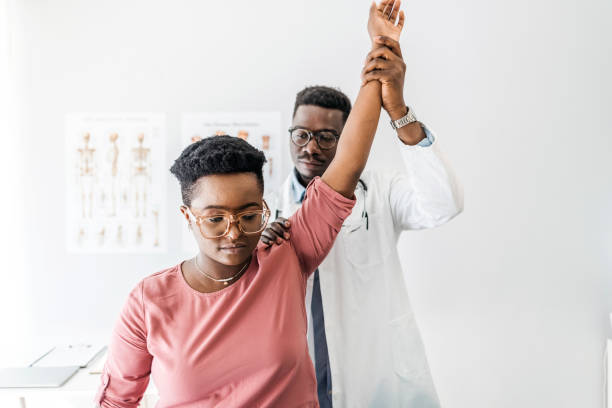
Back surgery is a booming business. About 500,000 Americans undergo surgery each year for low back problems alone. According to the Agency for Healthcare Research and Quality (AHRQ), we spend more than $11 billion each year on operations to relieve back pain. Unfortunately, it doesn't always buy relief.
For patients with serious structural problems or disease, back operations are often highly successful. But surgery is not the treatment of choice for most people with low back pain, according to a report from Johns Hopkins Medicine. Fewer than five percent of people with back pain, according to Johns Hopkins, are good candidates for surgery.
Is back surgery right for you? A little homework may help you avoid a costly mistake. Here are the questions that the Johns Hopkins report recommends that you ask:
RELATED: Top 10 Most Common Causes Of Back Pain
What is the source of your back pain?
If no doctor can locate a structural cause for your pain, back surgery won't work, according to the Johns Hopkins report. Conditions frequently treated by surgery include nerve damage, spinal tumors, infections, or deformity. Other candidates are a spine weakened by fractures or disease, or persistent leg pain caused by spinal stenosis, a narrowing of the spinal column that causes pain, weakness, numbness and tingling in the legs along with back pain. Second opinions are often a good idea in these cases.
Surgery can also be used successfully to treat herniated or "ruptured" disks, but it is often unnecessary. Not only do many people have herniated disks without knowing about it or experiencing pain, but more than 80 percent of people with the condition get better without surgery in 6 to 12 weeks, according to the Johns Hopkins report.
In extreme cases, a herniated disk can press against nearby nerves, causing a person to lose bladder and bowel control. In such cases, surgery is the only way to relieve the pressure on nerves and restore the bodily functions.
RELATED: Don’t Risk Your Discs! 5 Tips That Will Save Your Back
Herniated disks can also cause shooting pain down the leg (sciatica) along with numbness, tingling and weakness. If these symptoms steadily grow worse, or linger for six weeks or more, surgery may make good sense, says Richard Deyo, M.D., a professor of medicine at the Oregon Health Science University and a leading expert in treatment for back pain. But unless someone with a herniated disk has persistent sciatica or other signs of nerve damage, there's no compelling reason to surgically repair a herniated disk, he adds.
If an aching back is your only complaint, don't count on a quick fix from surgery. As Deyo and colleague James Weinstein, D.O., reported in the New England Journal of Medicine, surgery has never been shown to help patients with run-of-the-mill back pain.
How is your overall health?
Have a heart-to-heart with your doctor. If you have a chronic condition like heart disease or arthritis, you may be less likely to have a good outcome. Smoking, old age, and a poor diet may raise your risk of complications as well.
Have you thought about the risks of back surgery?
"Back surgery isn't like getting a haircut," Deyo says. "There can be major complications." Although the risk is low and many surgeons use minimally invasive techniques, some patients may wind up with nerve and muscle damage, blood clots, excessive bleeding, and hard-to-treat infections of the spine.
And even when the surgery goes smoothly, pain can reoccur at a later date. Operations on a spinal disk will weaken it; spinal fusion may cause some degeneration as well. Finally, surgery for herniated disks is no better than non-surgical treatment over the long term, according to the Johns Hopkins report.
Unless you're seeking emergency surgery, you have time to think things over and get a second option. Among other things, you should realize that back surgery isn't always successful. Spinal fusion is successful up to 80 percent of the time, and surgery on your disks will eliminate pain and sciatica in 70 percent of cases, according to the Johns Hopkins report.
According to a report in the Journal of Neurosurgery, success rates for microdiscectomy (measured by pain relief and patient satisfaction) reach 75 to 80 percent. However, you may be among the minority whose back pain is still there after the operation. It's a combination of how you were selected for the surgery, and the skill of the surgeon, plus a touch of luck.
Ironically, while back surgery has given many people a new lease on life, it has sent others into a cycle of pain and frustration, Deyo says. In Deyo's view, doctors are sometimes too quick to recommend surgery for patients with aching backs. Some patients end up having unnecessary operations that do nothing to relieve their pain, and a few leave the operating room worse off than they were before, he says.
Can you make it through a difficult recovery period?
Even if everything goes according to plan, the recovery process can be grueling, especially for patients who undergo spinal fusion. According to the North American Spine Society, healthy, young patients who have a simple fusion must severely limit their activities for 4 to 6 weeks. An older person with more extensive surgery could easily be laid up much longer. Although you shouldn't stay in bed, you'll likely have to avoid driving, lifting, and bending forward -- even too much sitting.
RELATED: 7 Ways To Naturally Relieve Back Pain
Unproven procedures
Despite the shaky evidence, many patients with simple back pain continue to go under the knife. For example, a minority of surgeons perform spinal fusions on patients who have no symptoms other than back pain. The operation is based on the theory that old or weak disks can hurt whenever the vertebrae move. By stopping the movement, surgeons hope to stop the pain.
Unfortunately, this approach is plagued with uncertainty. According to a report from the North American Spine Society, surgeons have no way to pinpoint the exact source of so-called disk pain. More importantly, there is no proof that patients who undergo the procedure for back pain do any better than patients who take a more conservative approach. "People who have spinal fusion surgery often feel better, just as people who go to the YMCA often feel better," Deyo says. "The truth of the matter is that most people improve eventually on their own."
Like the Johns Hopkins report, the North American Spine Society says spinal fusion surgery should be an absolute last resort for patients with simple back pain. In other words, if you have back pain without serious complications, try everything else first. With gentle activities, pain relievers, ice packs, heating pads, and a little time, your back is almost sure to feel better. If the pain doesn't go away and your doctor recommends spinal fusion surgery, find out why he or she thinks the surgery might help, and ask for a second opinion if necessary.
In short, back pain may be miserable and aggravating, even agonizing, but it's rarely an emergency. You have the time to work with your doctor (or several doctors) to find the treatment that's right for you. Back surgery could very well be the answer. Just make sure you're asking the right questions.








